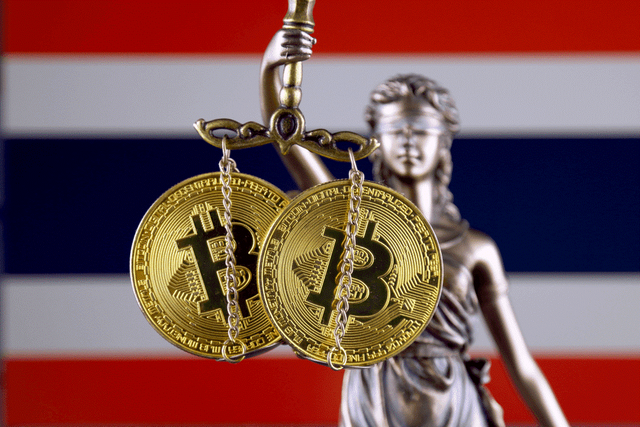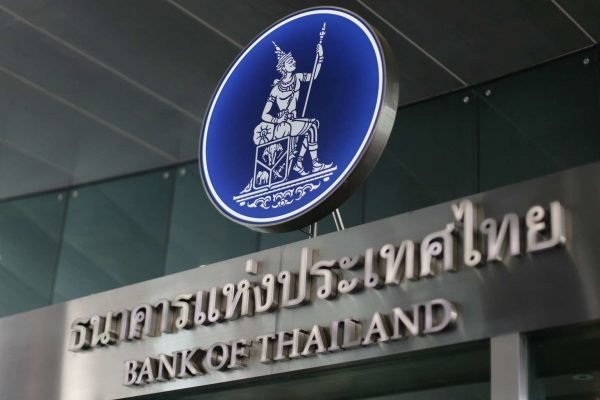
Following strong criticism over new legislation that has called for the mandating of taxes on all cryptocurrency-based transactions, Thailand's Department of Taxation has announced that it will disregard the 7% VAT on individual cryptocurrency investors. Thailand began regulating digital currencies on Monday (May 13).
In 2013, the Thai Central Bank announced a ban on Bitcoin and all cryptocurrency being used in any form of transaction within Thailand’s borders. However, the country would soften its stance in the ensuing months, and by January 2014, the use of cryptocurrency in Thailand was decreed legal.
Tax-Free Crypto Transactions
Thailand became a country where holidaymakers and business people could spend their Bitcoin and other cryptocurrencies in hotels, restaurants, bars and shops and get great value for their digital money. Unlike most countries, where crypto-accepting shops and bars were few and far between, in Thailand, seemingly any business accepted digital currency. Best of all, there was no added tax on any crypto transaction.
However, earlier this week that all changed, with the Thai government announcing new legislation that called for the mandating of taxes on all cryptocurrency-based transactions. First drafted back in mid-March, the governmental decree to provide the legal framework for the enforced taxation of cryptocurrencies and ICOs (Initial Coin Offerings) in Thailand came into effect on Monday.
15% Income Tax On All Crypto Transactions

What this means is all digital currency transactions are now subject to income tax for both private companies and individual investors at a rate of 15%. However, in what has been seen by some as a token gesture, the Thai authorities stated they will disregard the 7% VAT on individual cryptocurrency investments carried out by individual investors.
Saroch Thongpracum, the director of legal affairs at Thailand's tax department said at a press conference on Tuesday that people who trade cryptocurrencies via foreign exchange markets approved by the SEC (Securities and Exchange Commission) will be exempt from VAT. The Thai SEC is responsible for monitoring compliance with these new measures to regulate this sector.
No Tax On Crypto Trader Sites
Saroch also pointed out that individuals will still have to pay income tax at a rate of 15%. The VAT exemption for cryptocurrency traders aims to reduce their tax burden. Under the new law, private companies that issue ICOs must also pay corporation tax.
According to the decree passed, the Thai SEC will be the main regulator of digital assets in the country. Three divisions of crypto operators will be regulated: brokers, dealers and ICO platforms. All three must obtain licenses from the Minister of Finance and failure to do so could lead to a serious penalty.
Saroch also said the Thai government plans to issue cryptocurrency regulations by the end of June. However, the Thai Central Bank has announced that it will wait for the details provided by the SEC before taking any action. This institution has already asked the country's financial institutions to refrain from dealing with cryptocurrency transactions.
Major Criticism On New Tax Policy

Unsurprisingly, Thailand’s new regulations have received heavy criticism and accusations of bias. The new law states that companies that launch ICOs are liable to pay corporate tax on all finances raised from said ICO. Previously, private companies issuing ICOs were not subject to any such taxation. New cryptocurrencies rely on money raised from their ICO to fund their start in the crypto market. Losing 15% on tax is a substantial amount of lost revenue.
However, the new regulations may not last long. SEC secretary-general Rapee Sucharitakul announced that a “public hearing” into the new regulations will be held on Monday (May 21), followed by a consultation period that could last two weeks. Following that, the Thai authorities will hopefully amend the harsher regulations, before any changes are established in June.
Posted from my blog with SteemPress : https://www.bitmoneynews.com/news/thai-government-exempts-crypto-investors-from-7-vat/